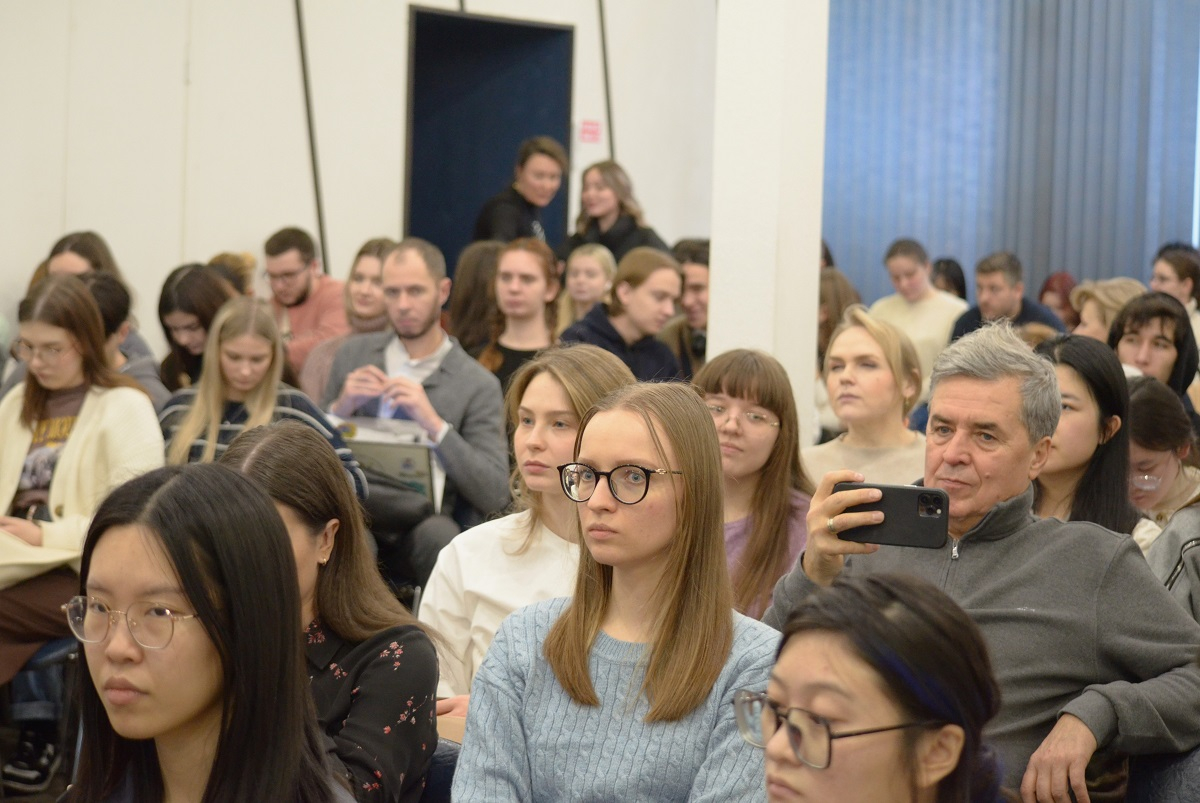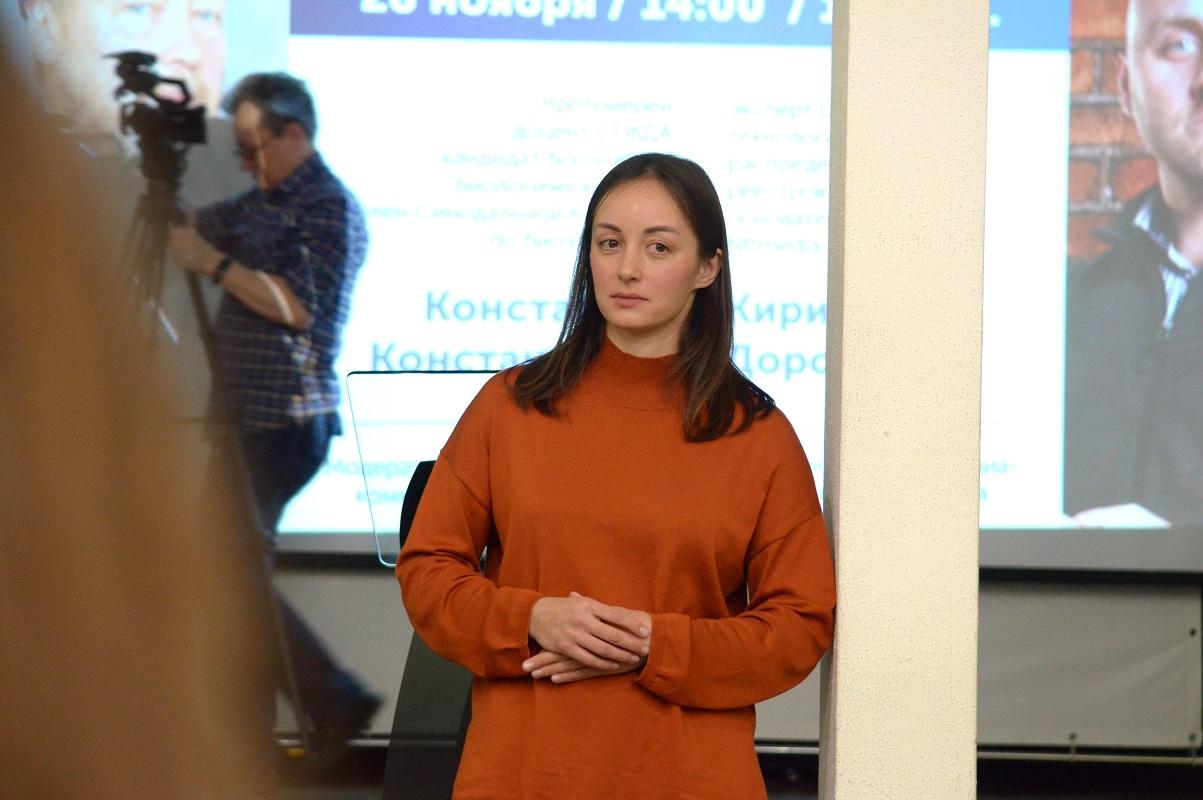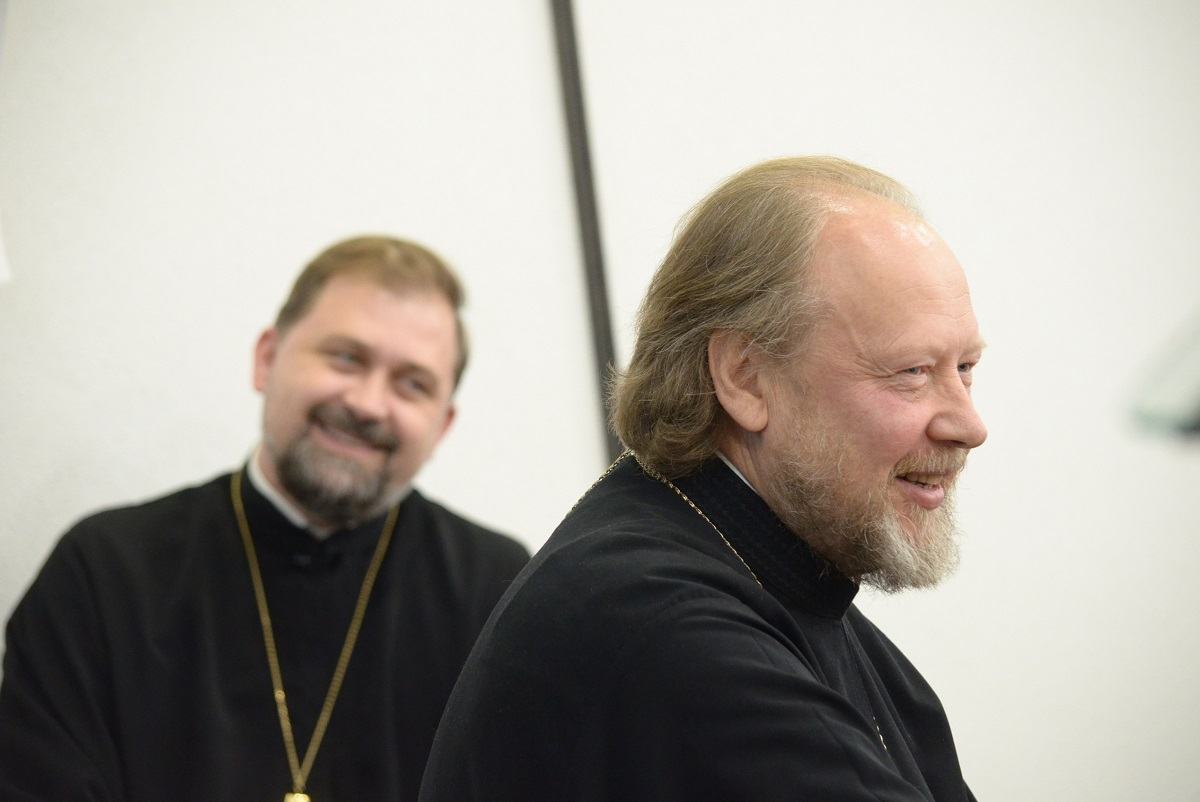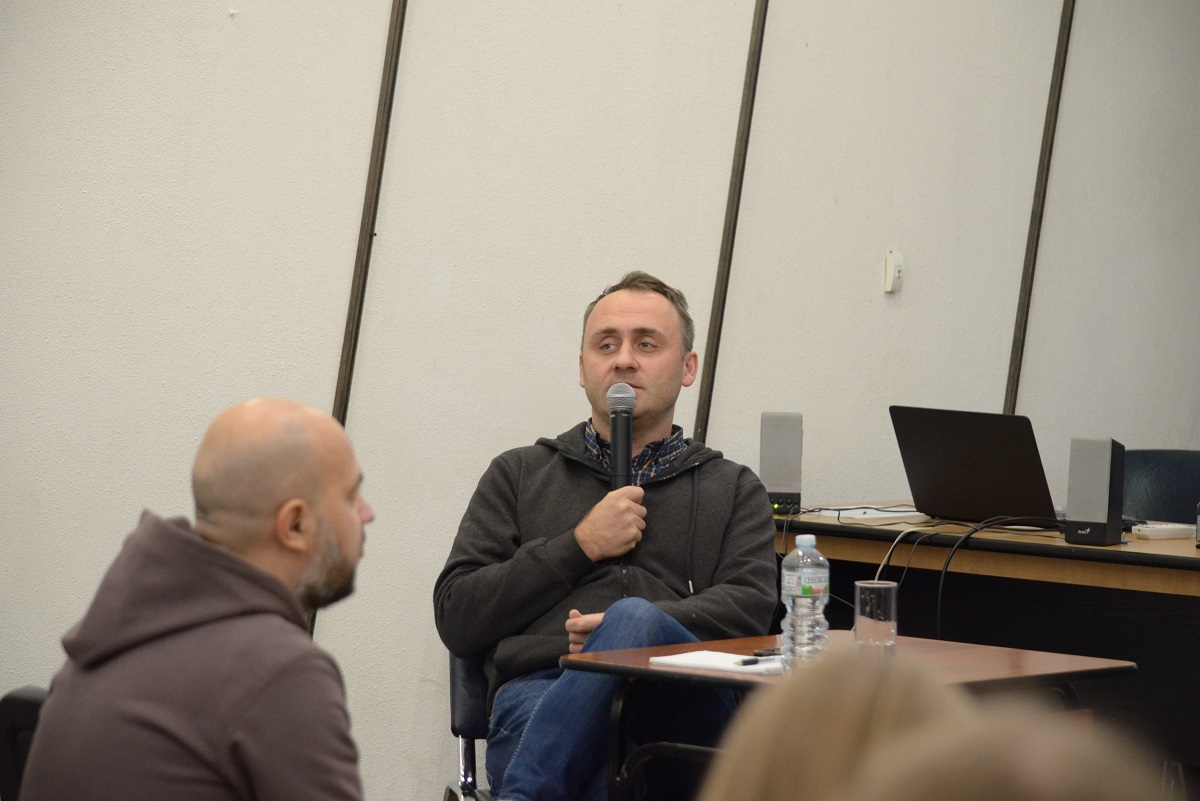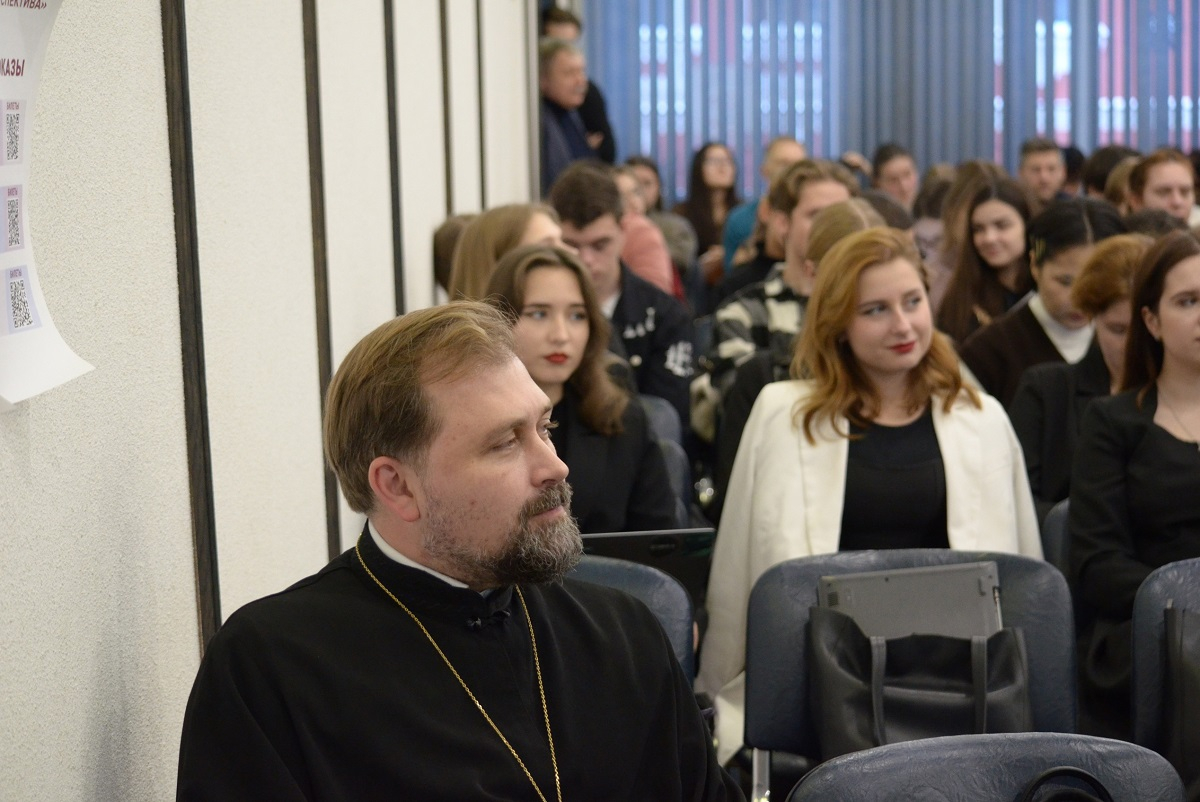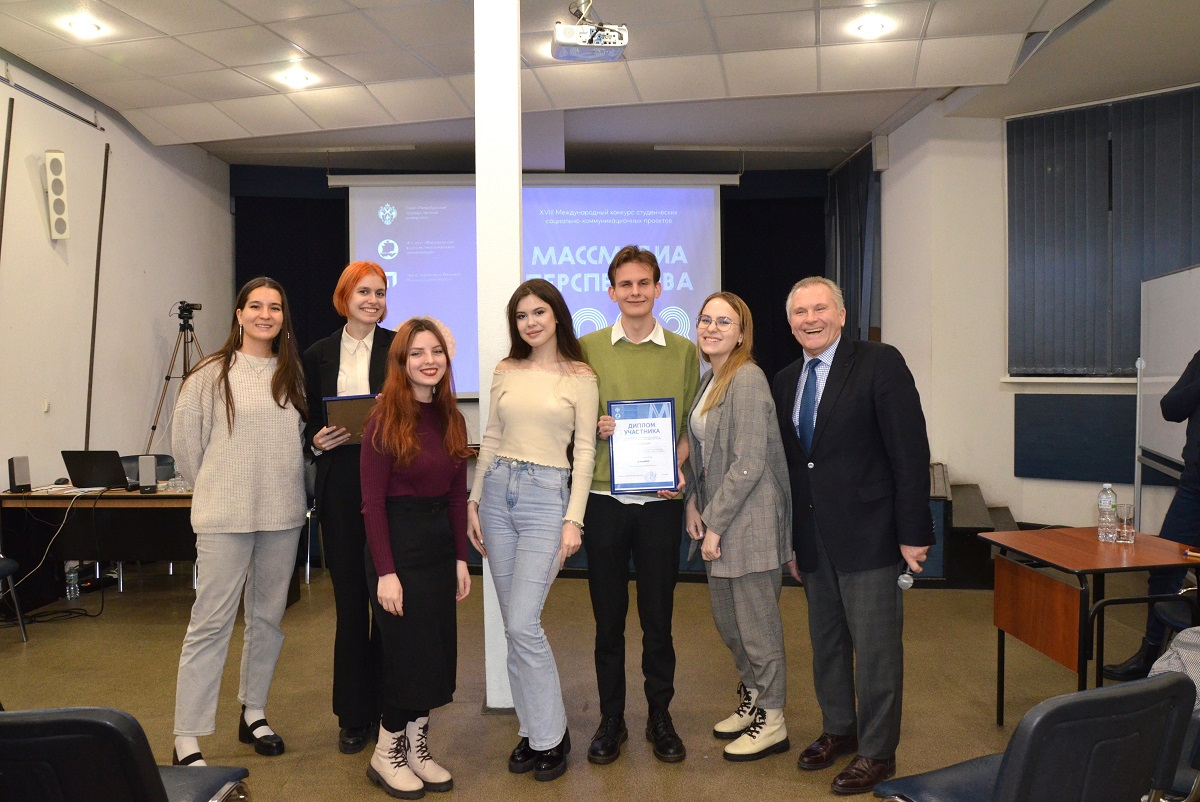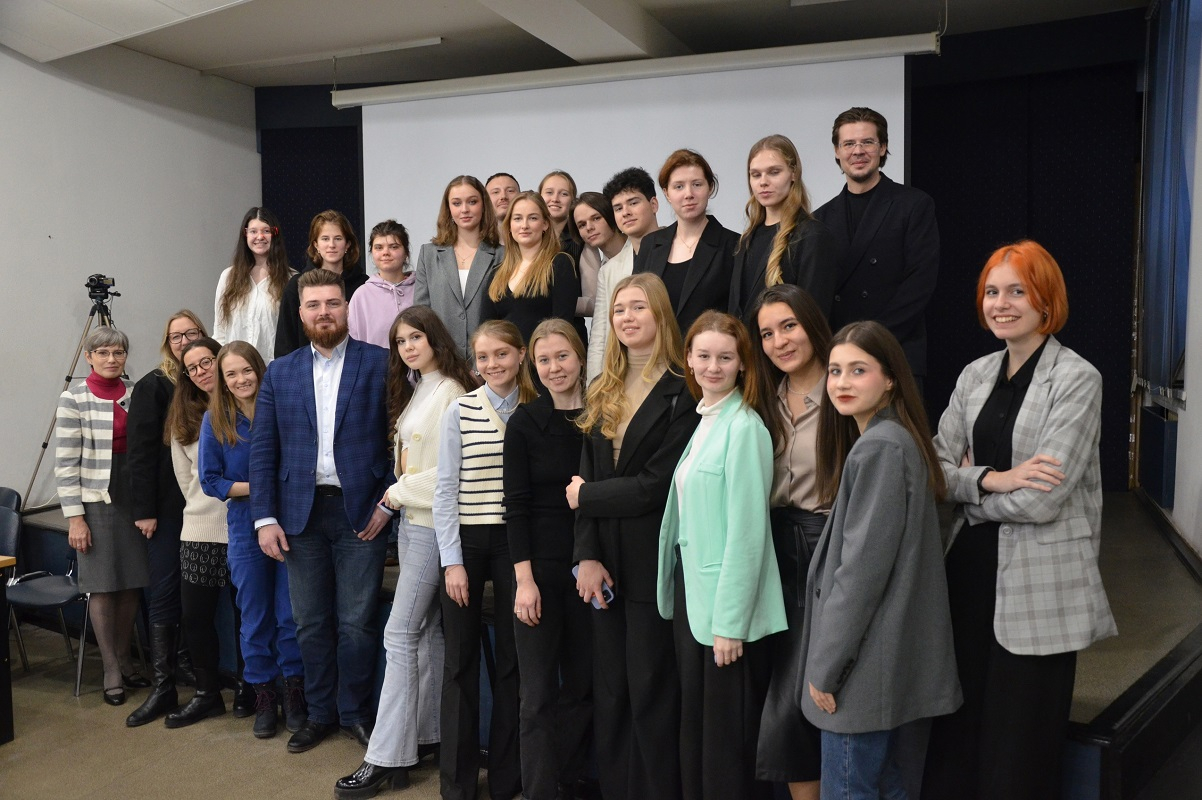Can artificial intelligence write a sermon? SPbU hosts a discussion on the future of AI between with an expert at the University’s Distributed Ledger Technologies Centre and a Russian Orthodox priest
A discussion "Artificial Intelligence"— Good or Evil?’ has been held at St Petersburg University. The guest speakers were: Archpriest Konstantin Konstantinov, Associate Professor of St Petersburg Theological Academy, Candidate of Theology, Candidate of Biology, member of the Synodal Commission on Bioethics of the Russian Orthodox Church; and Kirill Dorozhkin, FinTech and EduTech expert at the Distributed Ledger Technologies Centre at St Petersburg University, Director of the Project Office of the Centre for Artificial Intelligence and Data Science at St Petersburg University, the founder of the NFT media agency. The event was supported by the Centre for Regional Management of the Leningrad Region.
The discussion took place on the second day of the 18th International Student Contest of Communication Projects "Mass Media Perspective — 2023". The projects for the competition were presented by university students from St Petersburg, Moscow and Krasnoyarsk.
The event was moderated by Professor Kamilla Nigmatullina, Head of the Department of Digital Media Communications at St Petersburg University. The discussion was attended by a diverse audience of St Petersburg University students, academics, and guests of the University, who could ask questions to the invited speakers.
‘Neural networks are already among us, and they are integrated in our everyday practice. But what lies ahead? Some have fears about the future, others have hopes. But neither fear, nor hope comes true without human participation,’ said Professor Kamilla Nigmatullina beginning the discussion. Kirill Dorozhkin concurred with her opinion, noting that artificial intelligence is a mathematical phenomenon, while neural networks are a series of adaptive algorithms. They cannot exist without natural, human intelligence. According to Kirill Dorozhkin, they will always need subject matter experts to work properly. ‘A hundred years ago, two theorems — Gödel’s and Tarski’s — were proved, essentially demonstrating that artificial intelligence will sooner or later face an unsolvable problem,’ he explained. Hence, it will always need a human. Only a human can make a decision in a complicated situation, including the cases of all-but-impossible moral and ethical quandaries and crises.
Archpriest Konstantin Konstantinov pointed out that artificial intelligence just imitates some of the human cognitive functions. Yet, it can do so with much greater efficiency than us mere humans. Indeed, AI is an interesting area of research that enables us to better understand the human brain. On the other hand, this entails the danger of equating the person with the functions given to the machine. The speaker referred to AI in a philosophical context as "empty space".
We are faced with the fact that such a phenomenon as the inner world, or subjective reality, exhibits immeasurability, unprovability and ineffability. Philosophers have discovered a phenomenon that we are unable to prove that we have consciousness. This is the sacred mystery of the inner world that artificial intelligence does not and cannot possess.
Archpriest Konstantin Konstantinov, Associate Professor of St Petersburg Theological Academy, Candidate of Theology, Candidate of Biology, member of the Synodal Commission on Bioethics of the Russian Orthodox Church
This also raises the key issue of AI’s legal subject status and accountability, Father Konstantin added.
When answering the question of whether artificial intelligence can write a sermon, Father Konstantin underlined that a computer is able to mechanistically combine the words, but it cannot put thoughts, feelings and insights into them; hence, these words will not touch the heart of the audience. The same goes for saying a prayer: it requires a personal, spiritual involvement in the prayer process. His "opponent" agreed with this statement, recalling the character of Father Zosima, the elder, from The Brothers Karamazov by Fyodor Dostoevsky. Kirill Dorozhkin also noted that how it is said is often more important, than what is said.
Both speakers touched on the correlation between the virtual and real worlds. According to Kirill Dorozhkin, apart from entertainment, augmented reality can be used in rehabilitative therapy after traumatic injury, and also for training and acquiring additional practical skills. By contrast, Archpriest Konstantin Konstantinov advised seeking to find one’s true self in real life without immersing oneself in illusion, because this can cause loss of one’s identity.
‘Mathematician Leopold Kronecker said: «God created the integers, all else is the work of man.» Hence, artificial intelligence is the work of our hands. Where it will lead us and how it will be used is our choice and responsibility. So, let us enjoy the fruits of progress in all its possible manifestations, think about science, explore new laws, and do our best to understand how the world works,’ concluded Kirill Dorozhkin.
According to Father Konstantin, the real challenge for humanity will arise when traditional silicon carriers are replaced by new types. That is to say, data encoding techniques using proteins as data carriers have already been invented. It is the combination of artificial life and artificial intelligence that poses the greatest threats to humanity, Archpriest Konstantin Konstantinov summarised.
On the first day of the 18th International Student Contest of Communication Projects "Mass Media Perspective — 2023", the contestants publicly defended their projects. Anna Shitenkova, a third-year student in the Journalism programme at St Petersburg University, was named the winner. She presented a project "Be First: Artificial Intelligence". The second place was taken by second-year students in the Advertising and Public Relations programme at St Petersburg University: Anastasiia Artamonova, Daria Iaromich; and Iuliana Lutsenko. The team proposed an application "Conspecter", aimed at helping students to prepare for exams using AI. Third place winners are students from the Faculty of Journalism of the Institute of Public Administration and Civil Service of the Russian Presidential Academy of National Economy and Public Administration: Mark Plankin; Anton Khalilov; Arina Karpova; Iuliia Shulga; Mariia Barkhatova; and Anastasiia Tyniankina. The team presented a project "The Art of Intelligence".
The jury was chaired by Iurii Vovk, Deputy Head of the Centre for Regional Management of the Leningrad Region, and included: Marina Voskresenskaya, Professor in the Department of Theory of Journalism and Mass Communications; Anna Kuzmina, Associate Professor in the Department of Advertising; Valeriia Bitiutskaia, Assistant Professor in the Department of History of Journalism; Andrei Nosikov, Assistant Professor in the Department of Public Relations in Politics and Public Administration; and Polina Zainullina, Head of the Office for Journalism in the Marketing and Media Communication Department at St Petersburg University.


